
Nastassja Aglaia Kinski is a German actress and former model who has appeared in more than 60 films in Europe and the United States. Her worldwide breakthrough was with Stay as You Are (1978). She then came to global prominence with her Golden Globe Award-winning performance as the title character in the Roman Polanski-directed film Tess (1979). Other films in which she acted include the Francis Ford Coppola musical romance film One from the Heart (1982), erotic horror film Cat People (1982) from Paul Schrader, and the Wim Wenders drama films Paris, Texas (1984) and Faraway, So Close! (1993). She also appeared in the biographical drama film An American Rhapsody (2001). She is the daughter of German actor Klaus Kinski.

Danielle Fernandes Dominique Schuelein-Steel is an American writer, best known for her romance novels. She is the bestselling living author and one of the best-selling fiction authors of all time, with over 800 million copies sold. As of 2021, she has written 190 books, including over 140 novels.

Maximilian Schell was a Swiss actor. He won the Academy Award for Best Actor for the 1961 American film Judgment at Nuremberg, his second acting role in Hollywood. Born in Austria, his parents were involved in the arts and he grew up surrounded by performance and literature. While he was still a child, his family fled to Switzerland in 1938 when Austria was annexed by Nazi Germany, and they settled in Zürich. After World War II ended, Schell took up acting and directing full-time. He appeared in numerous German films, often anti-war, before moving to Hollywood.

Klaus Kinski was a German actor. Equally renowned for his intense performance style and notorious for his volatile personality, he appeared in over 130 film roles in a career that spanned 40 years, from 1948 to 1988. He is best known for starring in five films directed by Werner Herzog from 1972 to 1987, who would later chronicle their tumultuous relationship in the documentary My Best Fiend.
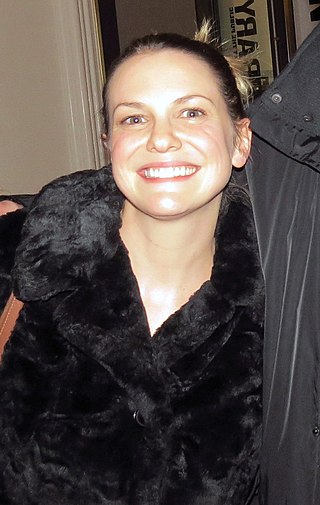
Larisa Romanovna Oleynik is an American actress. Oleynik began her career as a child actor, first appearing onstage as young Cosette in a national touring production of Les Misérables (1989–1991). She was subsequently cast as the titular character in the Nickelodeon series The Secret World of Alex Mack, which aired from 1994 to 1998. She also began a film career, starring in an ensemble cast as Dawn Schafer in the film adaptation The Baby-Sitters Club (1995), and in a lead role in the teen comedy 10 Things I Hate About You (1999).

Cat People is a 1982 American supernatural horror film directed by Paul Schrader and starring Nastassja Kinski, Malcolm McDowell, John Heard, and Annette O'Toole. It is a remake of the 1942 RKO Radio Pictures film of the same name. Giorgio Moroder composed the film's score, including the theme song, which features lyrics and vocals by David Bowie. Jerry Bruckheimer served as an executive producer.
Stacy Haiduk is an American actress. She starred as Lana Lang in the syndicated superhero series Superboy (1988–1992) and as Katherine Hitchcock in the NBC science fiction series, seaQuest DSV (1993–1994). Haiduk also had leading roles in the NBC prime time soap opera, The Round Table (1992) and Fox supernatural horror series, Kindred: The Embraced (1996), and has appeared in a number of feature and made-for-television movies.

Faraway, So Close! is a 1993 German fantasy film directed by Wim Wenders, who co-wrote the screenplay with Richard Reitinger and Ulrich Zieger. It is a sequel to Wenders' 1987 film Wings of Desire. Actors Otto Sander, Bruno Ganz and Peter Falk reprise their roles as angels who have become human. The film also stars Nastassja Kinski, Willem Dafoe, and Heinz Rühmann in his last film role.

To the Devil a Daughter, sometimes stylised as To the Devil... a Daughter, is a 1976 supernatural horror film directed by Peter Sykes and starring Richard Widmark, Christopher Lee, Honor Blackman, Nastassja Kinski, and Denholm Elliott. Based on the 1953 novel of the same name by Dennis Wheatley, it follows an American occult researcher in England who attempts to save a young girl preyed upon by a Satanic cult led by a fallen Catholic priest.
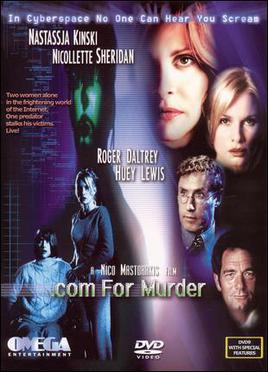
.com for Murder is a 2001 American science fiction horror film written by Nico Mastorakis and Phill Marr and directed by Mastorakis, starring Nastassja Kinski, Nicollette Sheridan, Roger Daltrey, and Huey Lewis. After being screened at various film festivals, it was released direct-to-video on January 14, 2003.
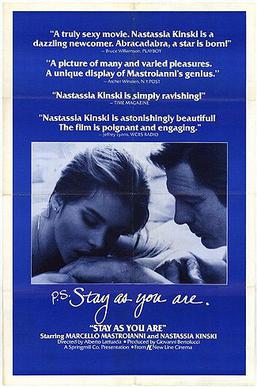
Stay as You Are, also known as Stay the Way You Are, is a 1978 erotic drama film, directed by Alberto Lattuada, starring Nastassja Kinski, Marcello Mastroianni, Barbara De Rossi, and Ania Pieroni. An Italian–Spanish co-production, it follows the May–December romance between a vivacious young college student and a middle-aged professional who is unhappy in his marriage.
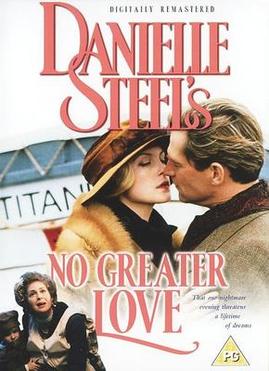
No Greater Love, also known as Danielle Steel's No Greater Love, is a 1996 American made-for-television romantic drama film directed by Richard T. Heffron. The film is based upon the 1991 novel of the same name written by Danielle Steel.
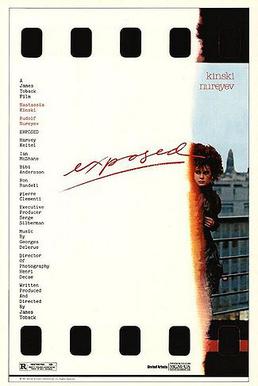
Exposed is a 1983 American drama film written, produced and directed by James Toback. It stars Nastassja Kinski, Rudolf Nureyev, Harvey Keitel, Ian McShane and Bibi Andersson.

Mixed Blessings, also known as Danielle Steel's Mixed Blessings, is a 1995 American made-for-television romantic drama film directed by Bethany Rooney. The film is based upon the 1993 novel of the same name written by Danielle Steel. It contains three stories of couples who are facing parenthood for the first time. Scott Baio, Bess Armstrong, Gabrielle Carteris, and Bruce Greenwood lead the all-star cast.

Maria's Lovers is a 1984 American drama film directed by Andrei Konchalovsky and starring Nastassja Kinski, John Savage, and Robert Mitchum. The plot follows a soldier returning from World War II who marries the woman of his dreams, but he is unable to consummate his marriage, ruining the couple's chances of a shared happiness. The film is the first American feature film by Konchalovsky and opened the 41st Venice International Film Festival. Maria's Lovers also was nominated César Award for Best Foreign Film.

Ariana Grande-Butera is an American singer, songwriter, and actress. Regarded as a pop icon, she is an influential figure in popular music and is known for her four-octave vocal range which extends into the whistle register.
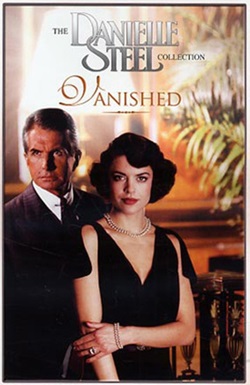
Vanished, also known as Danielle Steel's Vanished, is a 1995 American made-for-television romantic drama film directed by George Kaczender and starring George Hamilton, Robert Hays and Lisa Rinna. The film is based on the 1993 novel of the same name by Danielle Steel.
Crackerjack is a 1994 Canadian action film directed by Michael Mazo, and starring Thomas Ian Griffith, Nastassja Kinski and Christopher Plummer. In it, a troubled cop (Griffith) and a tour guide (Kinski) attempt to prevent a high-stakes robber (Plummer) from burying the mountain hotel hosting a wealthy mobster—whom both cop and robber are after—in an avalanche. The film was part of a wave of 1990s Die Hard imitators, and is often regarded as one of the better-made independent efforts in that subgenre.

Wilhelm von Brincken, also known as Wilhelm L. von Brincken, William Vaughn, William von Brinken, and William Vaughan, was a German diplomat and spy during World War I, who went on to become an American character actor of the silent and talkie eras.

Full Circle is a 1984 romance novel by American Danielle Steel. It was adapted by Karol Ann Hoeffner into a 1996 television film starring Teri Polo. It is Steel's seventeenth novel.

















